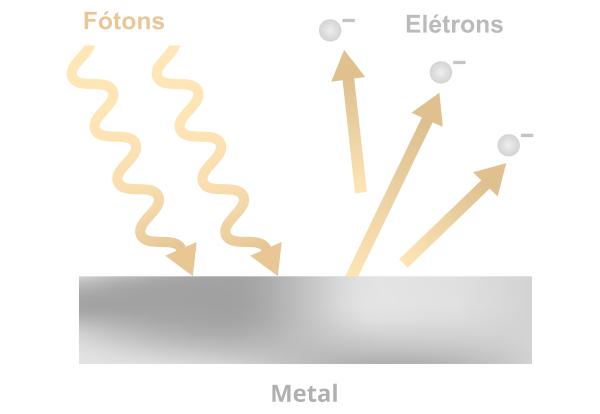Hades He was a deity of the Greeks in Antiquity, considered the god of the underworld, being the lord of this domain and responsible for preventing the souls of the dead from returning to the world of the living. It established itself as such after the Greek gods They won two wars, one against the titans and one against the giants.
He was not mentioned much in the myths, but the myth in which he kidnapped Persephone, goddess of agriculture, so that she married him is one of the best known in all of Greek mythology. The Greeks feared pronouncing Hades' name and used epithets to refer to him. Furthermore, there was an oracle of Hades in Greece.
Read too: Apollo — god of the Sun, music and arts, medicine and prophecy
Summary about Hades
Hades was the god of the underworld for the ancient Greeks.
He was responsible for preventing the dead from returning to the world of the living.
He counted on the help of Cerberus, a three-headed dog, to prevent the dead from leaving the underworld.
He was the son of Cronos and Rhea and brother of Zeus.
He kidnapped Persephone and made her his wife and queen of the underworld.
Hades, the god of the underworld
Hades was a deity in the myths and religiosity of the Greeks in Antiquity. He was known as the god of the underworld, the place where people's souls went after death. sIts function was to prevent the souls of the dead from returning to the world of the living..
To do this, he had the help of Cerberus, a dog known for having three heads. The Greeks feared Hades, avoiding mentioning his name and using epithets to refer to him. Hades was usually portrayed as an older man with a thick beard.
He was considered very rich, as his kingdom contained the mineral wealth that supplied the Earth. It was also Known for the power of invisibility, made possible thanks to a gift he received from Hephaestus: a helmet. When Hades wore this object, he was invisible to human eyes, and his helmet appears in other Greek myths, such as that of Hades. Jellyfish.
Origins of Hades
Greek myths narrate that Hades was son of Kronos and Rhea and that he was devoured by his father as soon as he was born. Kronos did this because he feared that one of his sons would rebel against him and remove him from his position of power. Eventually, Rhea ensured that Zeus was not devoured by Kronos and caused him to grow up safely.
As an adult, Zeus returned and made Kronos vomit all those he had devoured. So, Hades, Poseidon, Demeter, Hestia and Hera managed to free themselves from Cronus' womb, which started a war between the Greek gods and the titans. After winning this war, the Greek gods fought against the giants and also won.
After that, Zeus, Poseidon and Hades divided kingdoms among themselves, with Hades receiving the underworld and becoming the lord of that domain. Hades settled in the underworld, where he permanently resided, which is why he is not considered an Olympic god, as he did not live on Mount Olympus.
Hades in Greek mythology
Hades is not a god mentioned in Greek myths frequently. He was mentioned in the myth specified above, which involves Zeus, Cronos and the war against the Titans, and also in one of the most traditional myths in ancient Greek culture: the kidnapping of Persephone.
In this myth, Hades was hit by an arrow launched by Eros, son of Aphrodite and god of love, and he ended up falling in love with Persephone, goddess of agriculture and vegetation. This happened when Persephone was picking flowers in a meadow in Sicily. Hades decided to kidnap her at the time and take her to the underworld.
Versions of this myth say that Persephone's kidnapping by Hades took place with Zeus' permission. Anyway, Hades took Persephone to the underworld with the aim of making her his wife. Persephone's kidnapping deeply affected this goddess' mother, Demeter, also known as the goddess of agriculture.
An agreement was made by Hades and Demeter, and Persephone spent part of the year with her husband and another part of the year with her mother. You Greeks used this myth to explain the seasons, since when Demeter was away from her daughter, she became sad in such a way that it affected the plants, and her period of sadness corresponded to autumn and winter.
Read too:Hercules — hero mentioned in several Greek myths
Hades in the religiosity of the Greeks
The cult of Hades was widespread throughout Greece, but, as mentioned, the Greeks avoided mentioning his name because they feared his fury, since he was known as a god without mercy. There were temples to Hades in places such as Olympia and Pylos. Hades was also present in the religiosity of the Romans, being called Pluto by them.
You Greeks believed that the dead went to the underworld, and their souls were led to the rivers that separated the underworld from the world of the living by Hermes. At this point, they crossed the river with the help of the boatman Charonte, as long as they had a coin to pay him. Greek funeral rites included placing a coin on the body of the dead for the purpose of paying the boatman in the afterlife.
Arriving in the underworld, Hades and Cerberus guaranteed that these souls would not return to the world of the living. Subsequently, the dead were judged for their actions in life, being condemned to eternal suffering in Tartarus or eternal delight in the Elysian Fields.
There was an oracle in Ancient Greece who sought to communicate between the living and those who had died and were in the underworld. This oracle was known as the Nekromanteion of Acheron. Rituals for predicting the future were also carried out in this place through contact with the dead.



